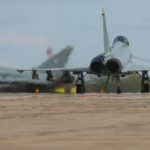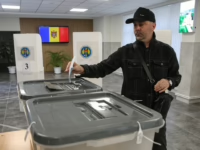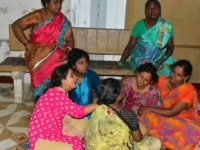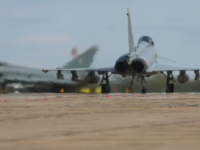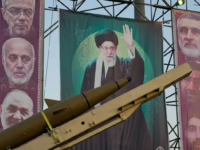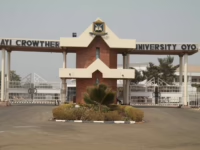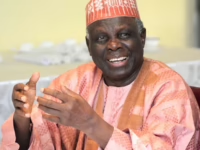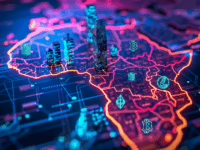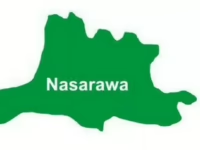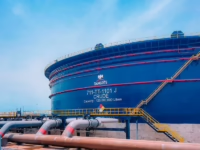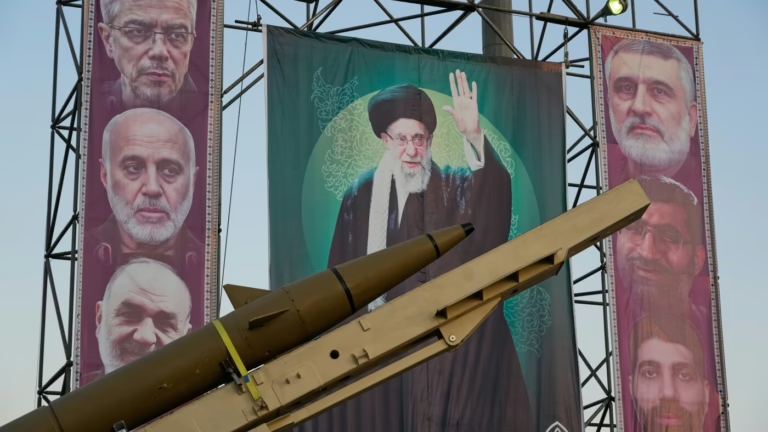A locally manufactured missile alongside banners featuring images of Iran’s Supreme Leader Ayatollah Ali Khamenei and military leaders who lost their lives in an Israeli attack in June, exhibited at Baharestan Square, Tehran, Thursday, Sept. 25, 2025.
Vahid Salemi/AP
In the early hours of Sunday, the United Nations reinstated sanctions targeting Iran’s nuclear ambitions, intensifying the economic strain on the nation. This move comes as many Iranians grapple with soaring food costs and growing uncertainty about their livelihoods.
These renewed sanctions will freeze Iranian assets held overseas, prohibit arms transactions with Tehran, and impose penalties on any advancements in Iran’s ballistic missile initiatives. This enforcement utilizes the “snapback” clause embedded in the 2015 nuclear agreement between Iran and global powers, arriving at a time when Iran’s economy is already under severe pressure.
The Iranian rial has plummeted to unprecedented lows, exacerbating inflation and making essential food items such as meat and rice increasingly unaffordable for ordinary citizens.
Concerns are mounting over the possibility of renewed hostilities between Iran and Israel, with the potential involvement of the United States. Missile installations damaged during the 12-day conflict in June appear to be undergoing reconstruction, fueling fears of escalation.
Human rights advocates warn of a surge in governmental repression within Iran, noting that the number of executions this year has reportedly surpassed figures seen in the past three decades.
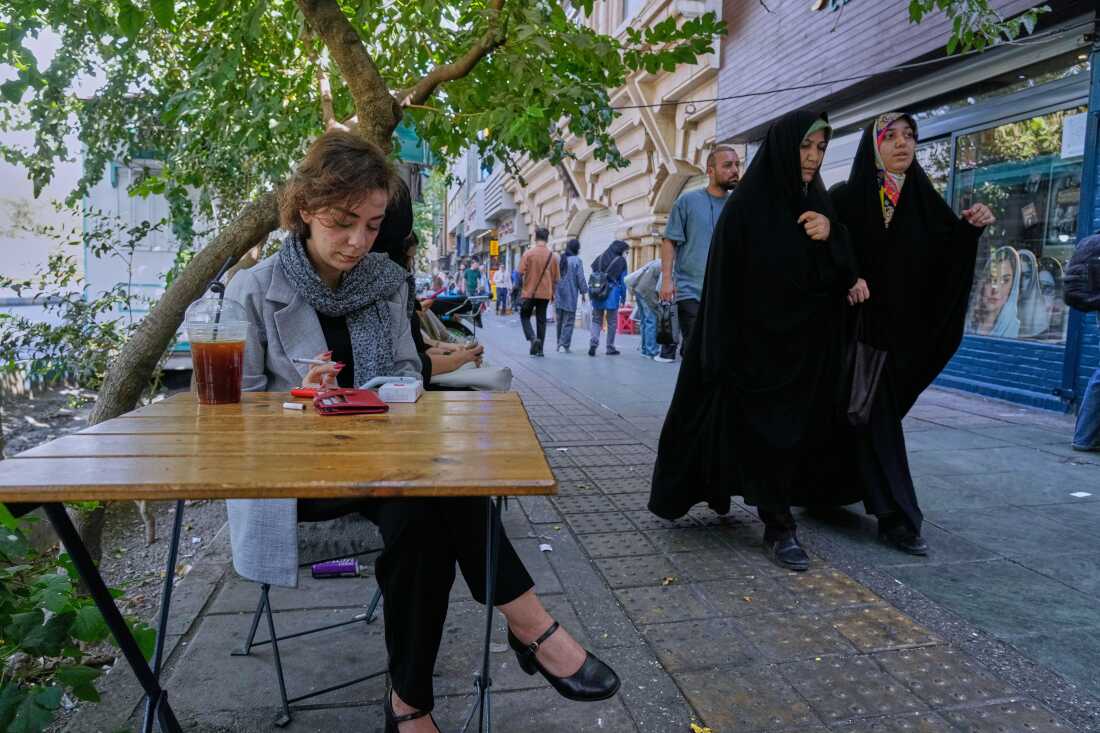
A woman enjoys the outdoor seating of a café along Enqelab-e-Eslami (Islamic Revolution) street in Tehran, Iran, Saturday, Sept. 27, 2025.
Vahid Salemi/AP
Sina, a father of a 12-year-old, who requested anonymity due to safety concerns, described the current hardships as unparalleled, even compared to the severe conditions during the Iran-Iraq war in the 1980s and the subsequent decades of sanctions.
“Economic struggles have been a constant in my life, but each year brings deeper challenges,” Sina shared with The Associated Press. “For my generation, it feels like our aspirations are always just out of reach.”
The ‘Snapback’ Sanctions Mechanism
The snapback provision was crafted to bypass veto powers at the U.N. Security Council, preventing nations like China and Russia from unilaterally blocking sanctions, a tactic they have employed against previous measures targeting Tehran. Russian Foreign Minister Sergey Lavrov criticized the move, labeling it a “trap” for Iran.
France, Germany, and the United Kingdom initiated the snapback process a month ago, citing Iran’s increased restrictions on nuclear inspections and stalled negotiations with the United States.
Following the June conflict with Israel, Iran further limited access for International Atomic Energy Agency (IAEA) inspectors. The country still holds uranium enriched to 60%, dangerously close to the 90% threshold considered weapons-grade, enough to produce several nuclear weapons if Iran chooses to accelerate its program.
While Iran maintains that its nuclear activities are peaceful, Western nations and the IAEA assert that Tehran had a covert weapons program until 2003.
The European trio emphasized on Sunday that they “exhausted all options to avoid triggering snapback,” but condemned Iran for denying IAEA inspectors access to nuclear sites and failing to provide a comprehensive report on its high-enriched uranium stockpile.
Tehran disputes the legitimacy of the snapback, partly referencing the U.S. withdrawal from the nuclear deal in 2018 under President Donald Trump’s administration.
U.S. Secretary of State Marco Rubio commended the European nations for demonstrating “decisive global leadership” by reinstating sanctions and stressed that “diplomacy remains viable” if Iran agrees to direct negotiations.
However, Iran’s response to the sanctions remains uncertain.
Kelsey Davenport, a nuclear policy analyst at the Arms Control Association in Washington, warned, “The assumption that Iran will return to talks post-strikes is risky, given the materials and knowledge Iran possesses.”
She added that excluding the IAEA heightens the risk of misjudgments, as the U.S. or Israel might justify further military actions citing the absence of inspections.
Rising Hunger and Unease in Iran
The June conflict’s aftermath has driven food prices sharply upward, placing staples like meat beyond the reach of many low-income families.
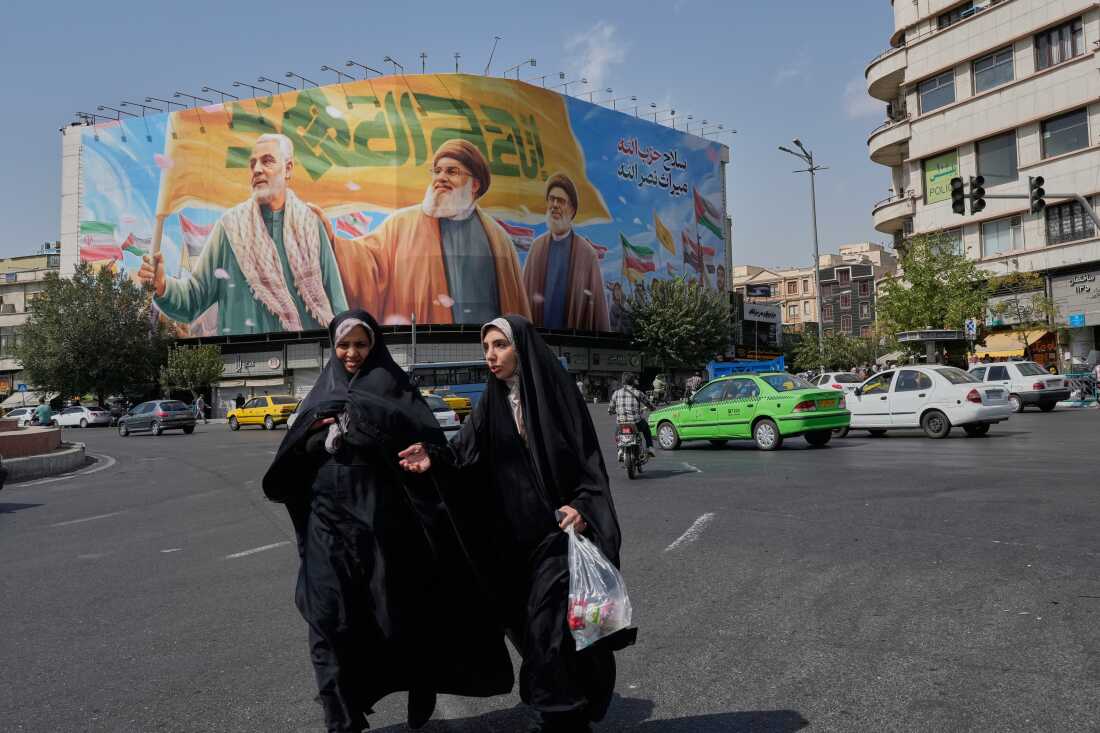
Two women pass a massive banner featuring the late commander of Iran’s Revolutionary Guard Quds Force, Gen. Qassem Soleimani, killed in a U.S. drone strike in 2020, alongside Hezbollah leaders who died in Israeli airstrikes in 2024, at Tehran’s Enqelab-e-Eslami square, Saturday, Sept. 27, 2025.
Vahid Salemi/AP
Official figures from June report an annual inflation rate of 34.5%, with the Statistical Center of Iran noting that prices for essential food items surged by over 50% during the same period. Yet, many Iranians experience even steeper increases at local markets. For instance, pinto beans have tripled in cost over the past year, butter prices nearly doubled, and premium rice varieties soared by 100%. Whole chicken prices climbed 26%, while lamb and beer rose by 9%.
“I notice daily price hikes for dairy products like cheese, milk, and butter,” said Sima Taghavi, a mother shopping in Tehran. “I can’t cut these from my family’s diet because my children are too young to go without.”
The combined stress of inflation and fears of renewed conflict has led to a noticeable increase in psychological distress among Iranians, with more individuals seeking mental health support since June, according to local reports.
“The dual pressures of the recent war and soaring living costs have left many feeling drained and hopeless,” explained Dr. Sima Ferdowsi, a clinical psychologist and professor at Shahid Beheshti University, in a July interview with Hamshahri newspaper.
Execution Rates Reach New Heights in 2025
Iran has witnessed widespread protests in recent years, driven by economic grievances, demands for women’s rights, and calls for political reform.
In retaliation, the government has escalated executions at a rate not seen since the mass killings following the Iran-Iraq war in 1988. Human rights organizations, including Iran Human Rights and the Abdorrahman Boroumand Center for Human Rights in Iran, estimate that over 1,000 executions have occurred in 2025 alone, with the actual number potentially higher due to underreporting by Iranian authorities.


